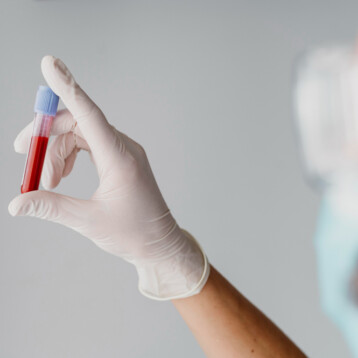Don’t you just love it when simply eating something tasty helps you fight and prevent disease? Researchers from the John Innes Centre in Norwich, U.K. have genetically modified a tomato so that in addition to having a ravishing purple hue, it can also help prevent cancer.
Anthocyanins are naturally occurring pigments found at particularly high levels in berries such as blackberry, cranberry and chokeberry. These bioactive compounds offer protection against certain cancers, cardiovascular disease and age-related degenerative diseases. There is also some evidence that anthocyanins also have anti-inflammatory activity, promote visual acuity and hinder obesity and diabetes. But since most people eat a small variety of vegetables, scientists are investigating ways to increase the levels of health-promoting compounds in fruits and vegetables that are more commonly seen on our plates.
Regular tomatoes contain high levels of lycopene, an antioxidant which is best absorbed if the tomatoes undergo cooking or processing.
In an effort to add anthocyanins to the tomato’s list of health benefits, scientists in the recent study expressed two genes from the snapdragon flower which normally induce the production of anthocyanins. The genes were then activated in the tomato fruits. The result was very high levels of anthocyanins both in the peel and the fruit of the tomato. These fruits are easily distinguished by their intense purple color.
The researchers then tested the tomatoes on mice that were genetically prone to develop cancer. When these mice were given the genetically enhanced tomatoes they became less likely to develop malignant growths. The next step in research will be to test the tomatoes on cancer patients and check whether they will have the same beneficial effect.
TFOT has recently covered the “Shelf Life Booster”, a machine capable of prolonging the shelf life of the tomato (and other foods) by several months, developed by an Israeli company called“Hefestus”. Another related TFOT story covers antioxidant present in soybeans, which was able to reduce the rate of metastases in mice bearing prostate cancer, researched at Northwestern University.
For more information on the purple tomatoes, visit the John Innes Centre press release page.










